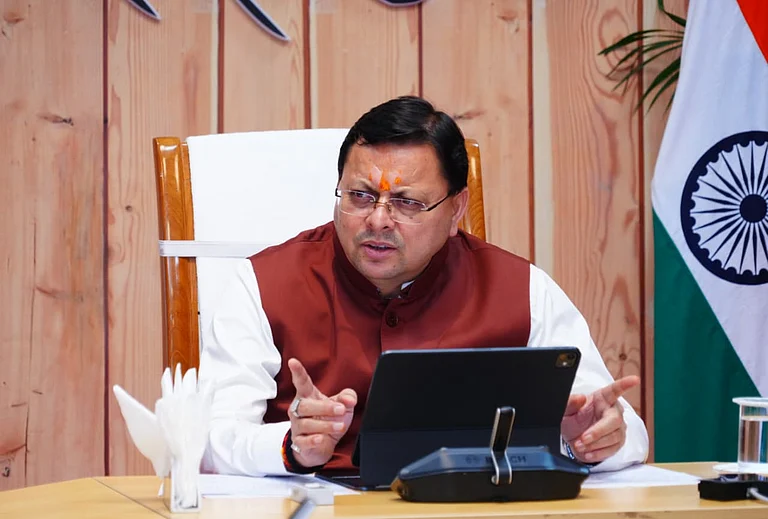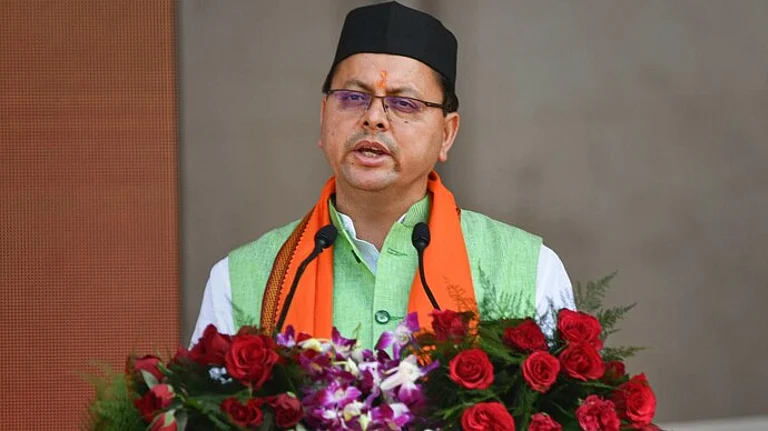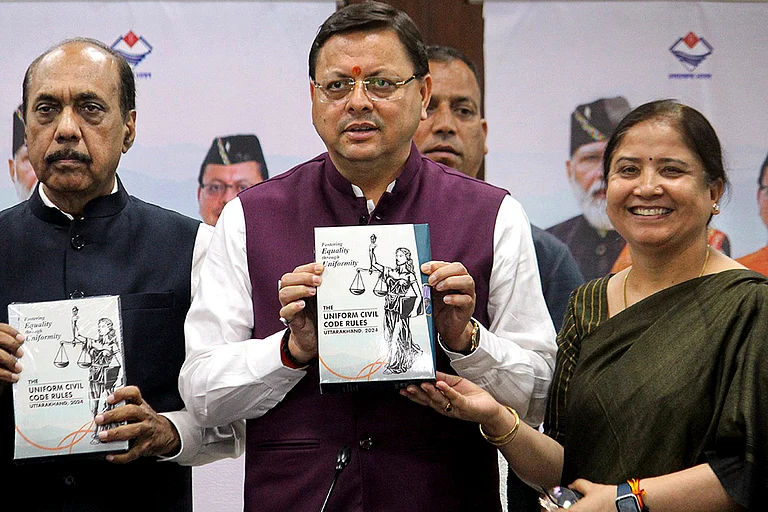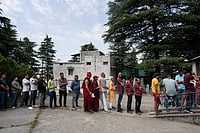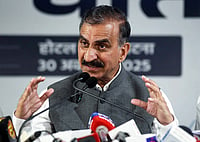Termed as historic, revolutionary and landmark move in Independent India, the Uttarakhand Assembly passed the Uniform Civil Code (UCC) Bill, proposing common rules for marriage, divorce, inheritance and adoption across religious communities in the state.
Last week when Bharatiya Janata Party (BJP), released its election manifesto—the ‘Sankalp Patra’, the saffron party gave a clear signal that passing of the UCC bill by the Pushkar Singh Dhami was aimed at testing the waters in small state, predominantly a Hindu majority landscape, two months before the general elections in the country.
“Just like the implementation of UCC in Uttarakhand—the Dev Bhumi, Sankalp Patra will fulfil all vows. It's Modi [Narendra Modi] ji’s guarantee to the people” Dhami said in his reaction at a campaign rally. He ,however, has not set-out any timeline as to when the UCC will actually come into force in the state.
Nevertheless the BJP says it has resolved to implement the UCC in the whole country to give women equal rights in all matters, irrespective of their religion. "Article 44 of the Constitution lists the UCC as one of the Directive Principles of State Policy” said BJP in Delhi, during the release of manifesto.
The Uttarakhand UCC Bill, which has already received the assent of the President Droupadi Murmu month back, applies to all residents of Uttarakhand except the tribal community, who constitute 2.9% of the state’s population. The tribal communities have been opposed to a UCC from the very beginning, thus excluded from the bill.
Ironically, the bill which was BJP’s poll promise in the 2022 assembly poll, has gone missing from the public discourse in the campaign for ensuing Lok Sabha poll in the state. Barring a cursory reference to the UCC, during speeches by the party candidates, nobody has so far gone beyond the genre like development, employment and migration—the basic issues.
“The entire election campaign in Uttarakhand is dull. No one is talking about UCC. It’s a dead issue. One reason for UCC missing from the campaign is that nobody asked for it. It was neither a demand nor necessity,” says political commentator Jay Singh Rawat.
The biggest flaw in the law, he says, relates to the definition of “resident” of Uttarakhand. As per law, any individuals who have primarily lived within the geographical boundaries of Uttarakhand for at least one year, are considered residents.
“This residency requirement typically refers to individuals who have established their domicile or permanent address within the state and have continuously resided there for the specified duration” it says as Rawat puts this anomaly as utterly confusing.
The people of the state for a long time, have been demanding that only those be treated as real ‘residents’ of the state, whose antecedents date back to before 1950.
The BJP is rather on the receiving end in the matter, even silent. Moreover, the natives have also demanded that in order to preserve the cultural identity of the state, the government must implement stringent land laws to prevent outsiders from plundering its land resources.
Yet, Dhami says the government will soon notify the rules, which are being framed under the UCC Act 2024 by a high level committee headed by retired Chief Secretary, Shatrughna Singh. The UCC was promised during the 2022 elections and the government has fulfilled its promise to take a lead in the country.
“For the BJP, it’s the key ideological commitments and now Modi ji guarantees to the nation”, says Uttrakhand CM .
The UCC law mandates the compulsory registration of marriages within 60 days of solemnisation. This provision applies to all residents of Uttarakhand, whether marrying within or outside the state. The non-registration of marriages will be met with a penalty of Rs 10,000. Submitting false information would incur a fine of Rs 25,000 and a three-month jail term. No marriage could be dissolved without a court order otherwise it would attract imprisonment for up to three years.
The law, in a major shift has legalised the live-in relationship but will have to be registered compulsorily, regardless of whether the concerned man and woman, are residents of Uttarakhand or not.
In case, couples in a live-in relationship do not submit their statement, they will be served a notice following which a criminal prosecution can be initiated against them. Women deserted by their live-in partners can claim maintenance through the competent court. The children born out of such relationships will be considered legitimate.
The UCC leaves out the members of the LGBTQIA+ community from its ambit and applies only to heterosexual relationships.








